It was just one day in my life…
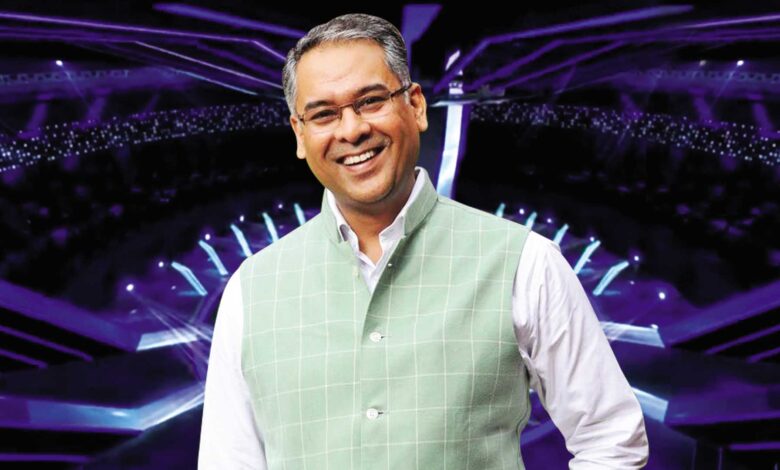
India’s first KBC winner, Harshvardhan Nawathe, on his tryst with destiny and how a single right answer back in time changed the course of his well-laid path and led him to his current CSR plans as COO for JSW Foundation, discovers Mahesh Dharmadhikari.
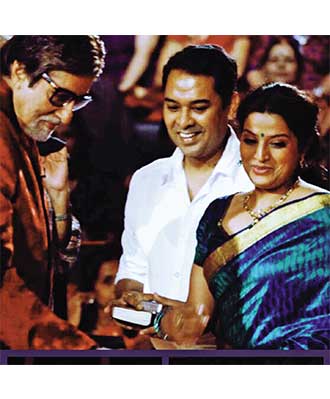
Life happens when we are busy making plans. A single moment can change the course of our life forever. A hardworking boy from an educated and disciplined family aspires to be an IAS officer and serve the people of his country, almost attains his goal, but then fate gives his dreams a little twist. Though he does not become an IAS officer, however, life still makes him work for people, in a different way. This is Harshvardhan Nawathe for you, the first Crorepati from the legendary quiz show ‘Kaun Banega Crorepati.’.
Man proposes but…
A son of an IPS officer, Harshvardhan, always aspired to become an IAS officer. After graduation, he worked for a couple of years. Then he gave up the job and started preparing for the Public Service Commission examinations. But as it was to be, the KBC happened and he shot to fame overnight. That followed with the media contracts, contracts with the channel, attending parties as a celebrity, invitations as a guest at myriad shindigs. He received offers to act in Hindi and Marathi films and tried his hand at modelling as well.
Homing beacon
Though he had embarked on his journey of a thousand miles, he was still asked the crore-rupee questionː How did he juggle the fame n’ fortune? People get carried away by the trappings of the rich and the famous and seldom know how to handle their windfall. It is very difficult to remain grounded and behave rationally after getting the fame and invest wisely after hitting the jackpot. Harshvardhan credits his even-footing to his upbringing.
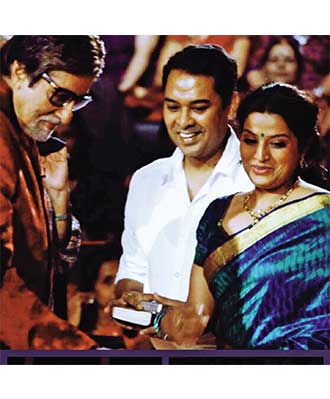
‘My parents and family were a strong support system. I was fortunate enough to be mentally prepared to handle this transient fame. Despite getting modelling and film offers and getting opportunities to attend Page 3 parties, hobnobbing with Bollywood royalty and so on, the values instilled in me by my parents helped me to come out of this bubble fame,’ he recalls.
Still walking down the corridors of time, Harshvardhan adds, ‘I realised earlier on that fame was transient and that people would eventually forget me once the novelty died down. What is more acting wasn’t my cup of tea, so I thought it was better to stick to my goals rather than failing miserably in the glam world.’
Stepping into the big league
Moreover, the second and the most important factor was the instant money. A crore of rupees was — and still is! — a very big deal. At that point in time in the year 2000, only 40,000 people in India owned one crore rupees. In a single night, Harshvardhan suddenly found himself in the elite club of crorepatis. It required a balanced head on strong shoulders to not get carried away by his windfall. Fortunately, Harshvardhan’s parents and well-wishers helped him stay his course. Their counsel and wisdom proved to be invaluable and today, Harshvardhan is glad that they kept him rooted.
Paid the piper
Every coin has two sides. No one realised this better than Harshvardhan. He could not find time to prepare for the PSC examinations and his dream came to a screeching halt. A brutally honest Harshvardhan admitted to himself that it required a consistent approach to get into the administrative services. However, right at the onset itself he had an epiphany that the world of glitz n glam, tinsel town, and the mad ad world were not his cup of tea. With a sensible head firmly screwed on his shoulders, Harshvardhan refused to be swayed by the fame. Instead, he opted for Plan B. He flew to the United Kingdom to earn his MBA degree from the Napier Edinburgh University.
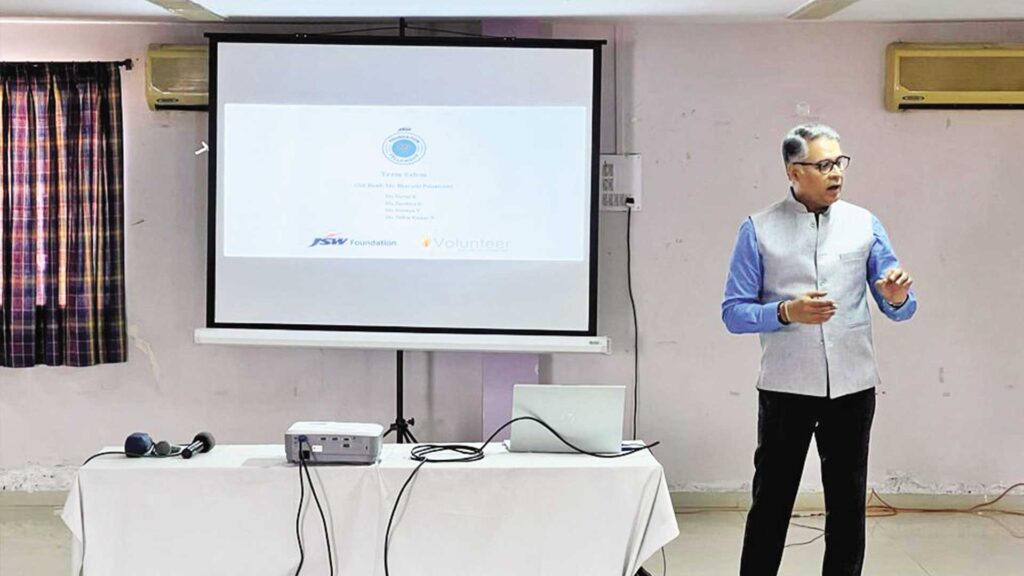
Back into the social sector
With a degree in hand, Harshvardhan’s first corporate stint was in the field of infrastructure and finance. While working, he observed the disparate divide between government policies and schemes for the marginalized sections of society. The schemes seldom reached and benefitted the indigent.
A need to serve
Harshvardhan chose to work for those desperately in need of a hand. Moreover, he had always dreamt of serving his countrymen. Though his dream had been hijacked by La Destiny, Harshvardhan discovered that he could still live his dream, in a different way. Harshvardhan believed that he could still serve people by working in the social sector.
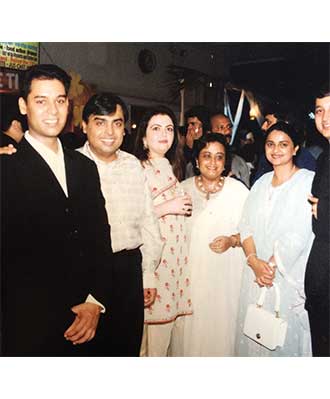
First stepping stone
His first job in the social sector was with Naandi Foundation, a Hyderabad-based NGO working in many areas. At that point in time, it was one of the largest NGOs in India. While it had a good presence down south, however, in Maharashtra it did not have a presence. Harshvardhan was entrusted with the responsibility of making the NGO’s presence felt in Maharashtra.
Playing for the team
For the unversed, the JSW Foundation (erstwhile Jindal Education and Medical Trust and Jindal South-West Foundation) was established in 1989, and is the social development arm of the JSW group which is governed by the ideology that every life is important and must be given fair opportunities to make the best out of it.
Harshvardhan now works for the JSW Foundation as Chief Operating Officer and has enhanced this sector with a rich and varied experience going back two decades—and counting!
CSR is mandatory only in India
After working for almost two decades in the social sector, Harshvardhan has handled all the three verticals of this sector namely NGO, Social Enterprise, and CSR. Those milestones marked his journey from core development to social enterprise to CSR. Harshvardhan has seen this sector evolve over the last these years. Earlier, CSR was more of philanthropy. Today, it is seen as money to be utilized for a cause. India is the only country in the world where CSR is mandatory to the profit-making companies.
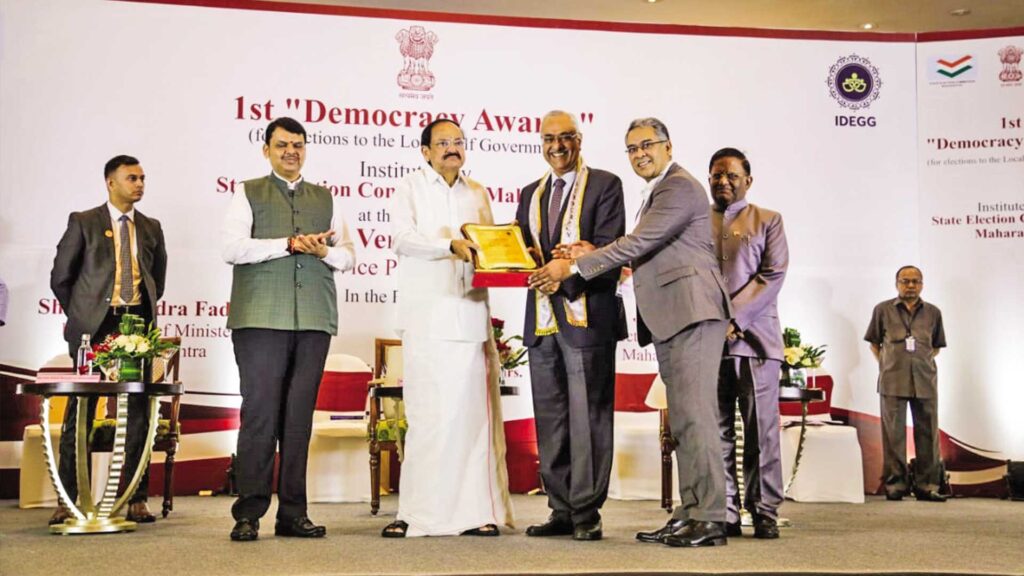
The CSR system is more transparent, more in line with the government plan and the NGOs cannot waffle around with the money. There is an eagle-eyed monitoring system, feedback structure and metrics in place to measure the objective, outcome, and impact of the program.
Close to the heart
Back in the day, while working for the Naandi Foundation, Harshvardhan had been assigned a task to work with the municipal schools in Mumbai to track the progress of the students and provide them with the remedial education wherever required. The project was funded by the ‘Michael and Belinda Bell Foundation’. There were many challenges to face while wading through the boggy grounds.
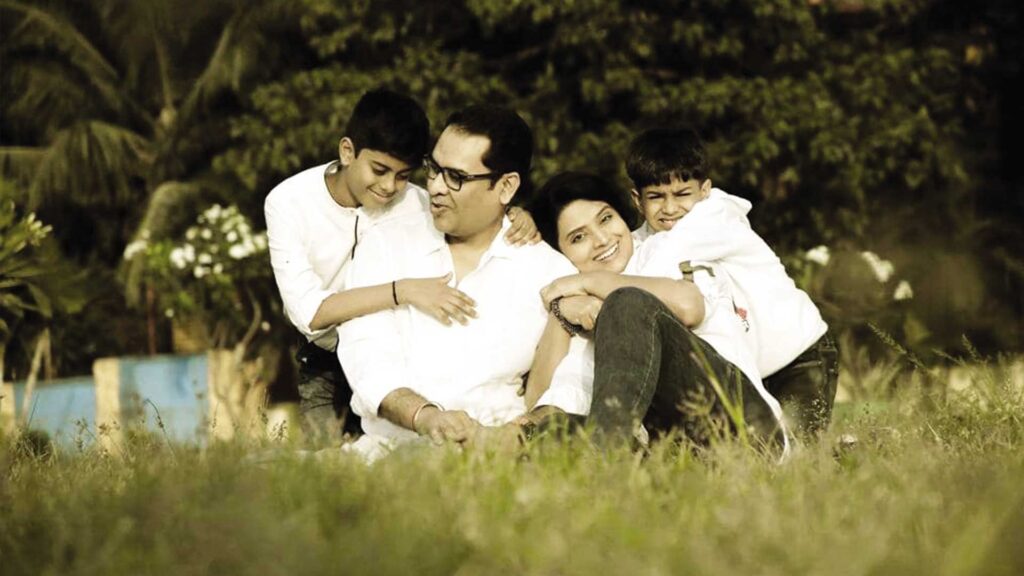
Hard lessons
For one, the Brihanmumbai Municipal Corporation (BMC) is one of the richest corporations in India, they had more funds than the foundation was offering. They had more manpower than Naandi Foundation was deploying and they were a bit hesitant to take forward this project. However, somehow, the proposal got through and in the first analysis, very startling information was revealed. The students were way below mark. There were 200-plus schools and 25000 students involved in the project and Naandi Foundation employed more than 600 people to track the progress of these children and provide them with the remedial education by taking the extra classes in the school premises. The trainers were employed, the curriculum was designed and the training was imparted by the Naandi Foundation. It was a huge project not merely by size of the sample but the budget as well. It was completed successfully and is a project very close to his heart.

Home where it all begins…
A complete family man, Harshvardhan! Along with his actor-wife, Sarika, sons Saransh and Reyansh and his father, a retired IPS officer (his mother passed away last year), Harshvardhan lives in Mumbai. But as always home to Harshvardhan is where his heart is…and his heart is all about finding ways to serve his nation!
Harshvardhan observed the disparate divide between government policies and schemes for the marginalized sections of society. The schemes seldom reached and benefitted the indigent. He chose to work for those desperately in need of a hand.

